The 2002 Cultural Heritage Act provided for the Ministry responsible for cultural heritage, to prepare a National Strategy for Cultural Heritage, which was approved and published in 2006. One of the outcomes of the Strategy was the formulation of a National Research Agenda for Cultural Heritage (NARCH).
In 2010 the Superintendence of Cultural Heritage issued a Discussion Document about the NARCH in consultation with other entities. In 2019, the initiative was once again taken up by the Superintendence in tandem with the E-RIHS initiative led by the University of Malta, and rallied other heritage related state entities, the University, as well as the Church to collaborate in forming a NARCH.
The purpose of the NARCH is;
“to promote high quality and innovative scientific research in cultural heritage issues, to advance knowledge, improve the mapping of cultural heritage assets and their conservation and protection requirements, the facilitation to greater access to archives and databases and to support the created of innovative experience and heritage services.”
(SCH Discussion Document, 2010)
The Superintendence of Cultural Heritage with the help of the Office of the Permanent Secretary of the Ministry for The National Heritage, The Arts and Local Government (MHAL), and the assistance of Prof. JoAnn Cassar from the University of Malta, organized the First NARCH Seminar on 1st December 2022 in the Valletta Design Cluster to disseminate the main findings to participants in the survey.
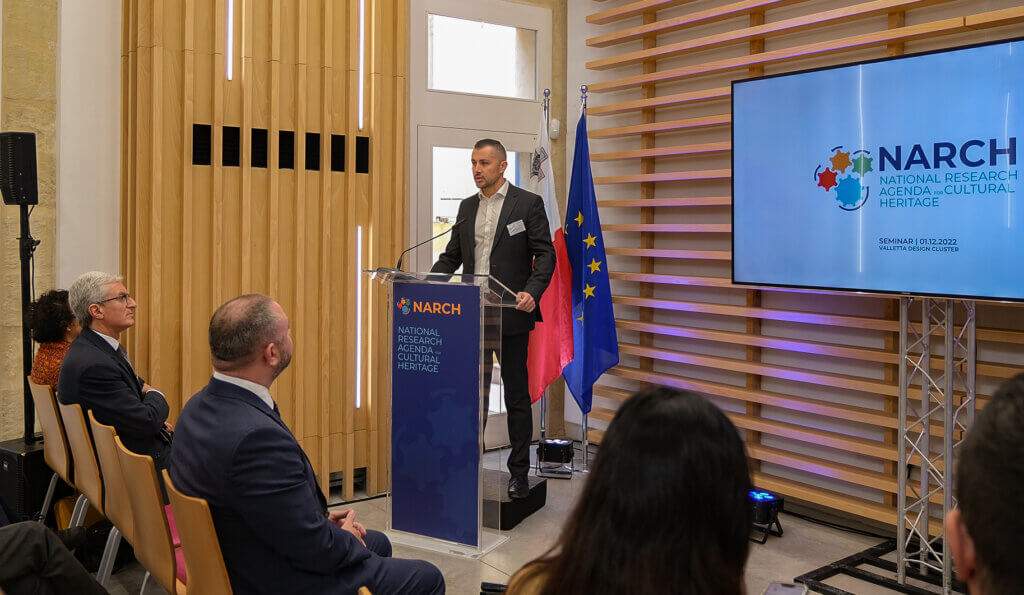
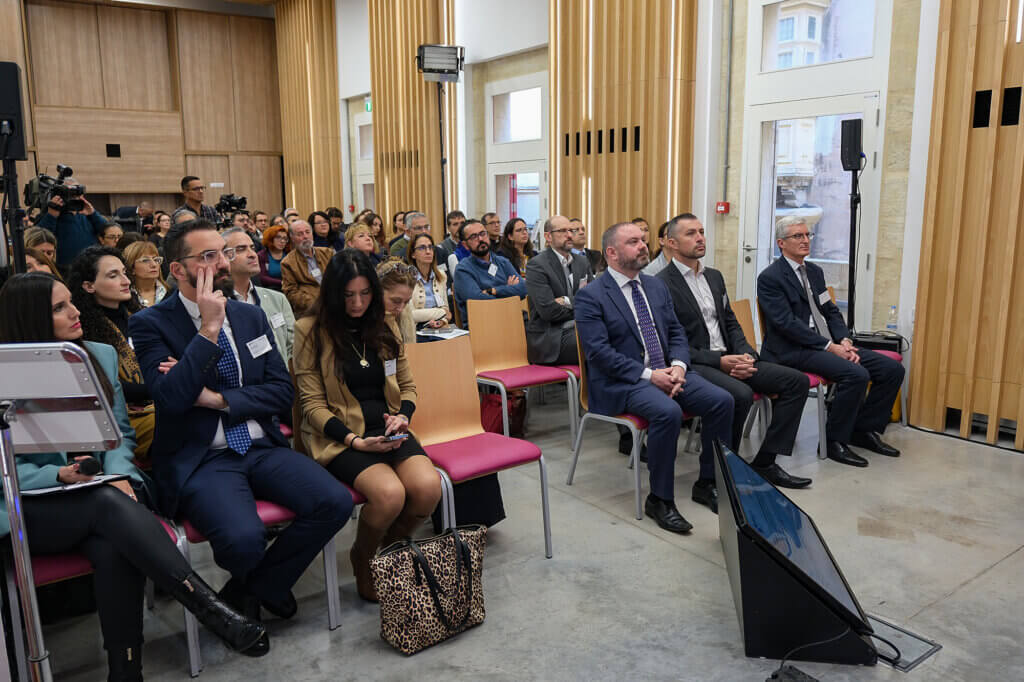
More than 80 participants from various professions and entities that work and carry out research on Heritage in Malta attended. Short speeches were made on the Findings from the Survey carried out in the first half of 2022. The speakers also gave a short explanation to the media that was broadcasted and uploaded on social media.
The Seminar included two workshop sessions, six of which were specialisation focus groups held in the morning (archaeology, art history, built/urban heritage and restoration, archives/history/ancient languages, anthropology/cultural heritage management, objects restoration/heritage sciences), and another six with interdisciplinary participants held in the afternoon.
Each group had a moderator and a rapporteur chosen amongst those attending and who were briefed about their roles a few days before the event. After each workshop session, the 12 rapporteurs shared the outcomes from their groups with those attending. Question time and the rapporteur sessions were led by the Chief Moderator for the day. Attendees had also the opportunity to network during the breaks. Those present expressed satisfaction and showed the desire to have more of these activities as these provide opportunities for discussion, collaboration, and interdisciplinary work.
The Superintendence intends to take this project further in the coming years and is is planning the follow-up with the coordinators and stakeholders.
NARCH supports the goals of the E-RIHS project.
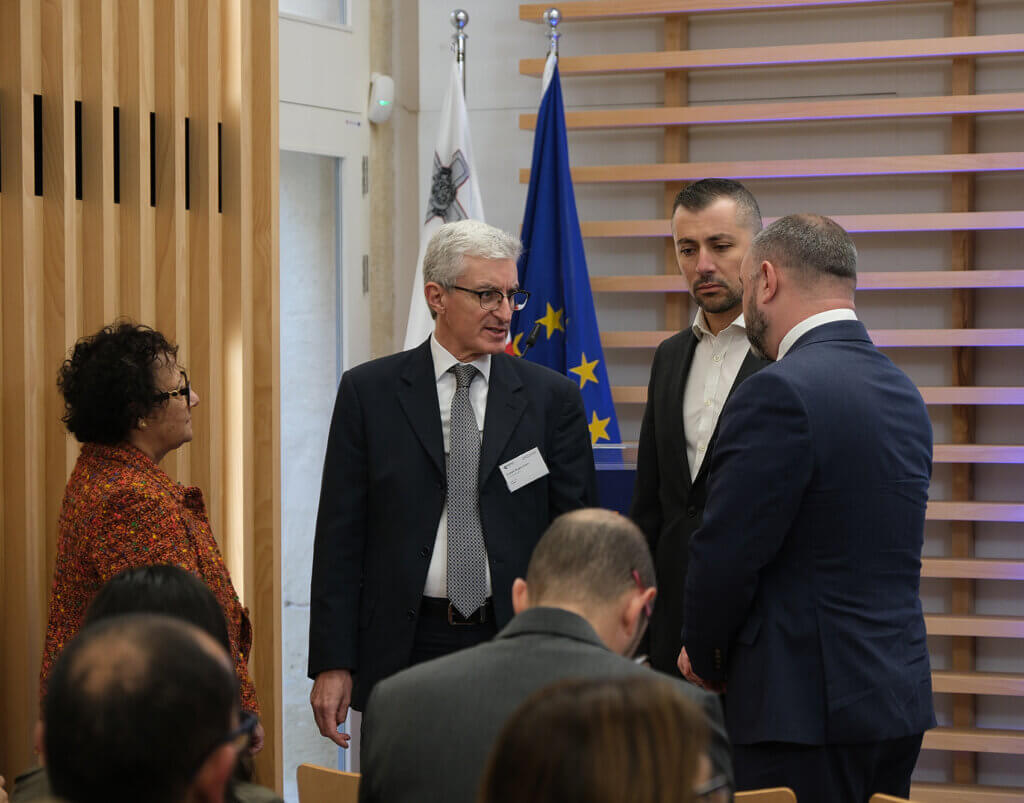
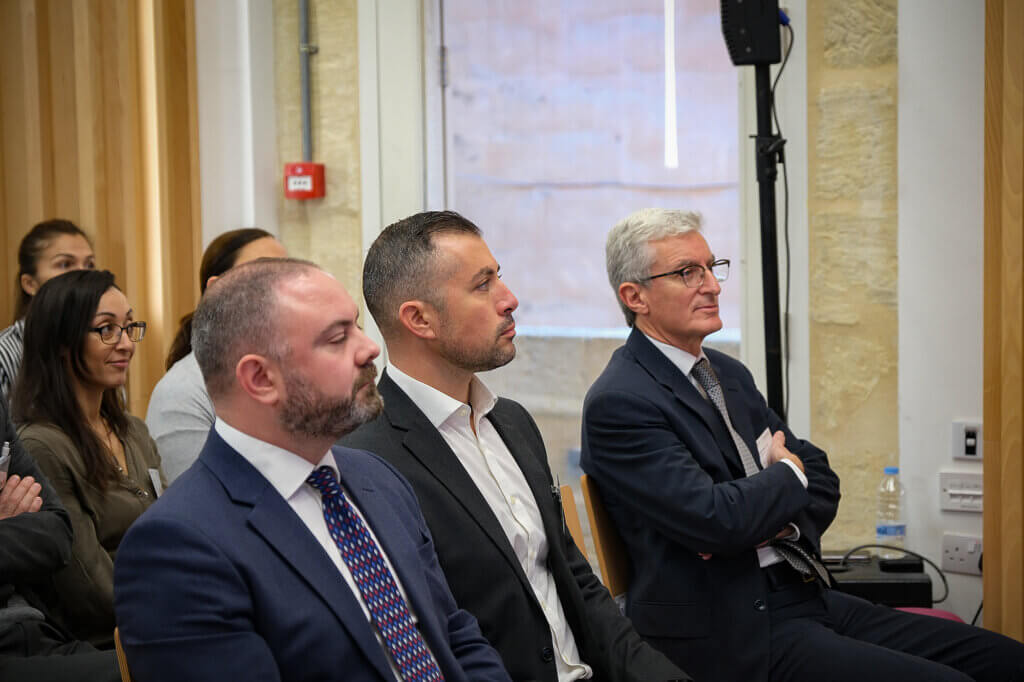
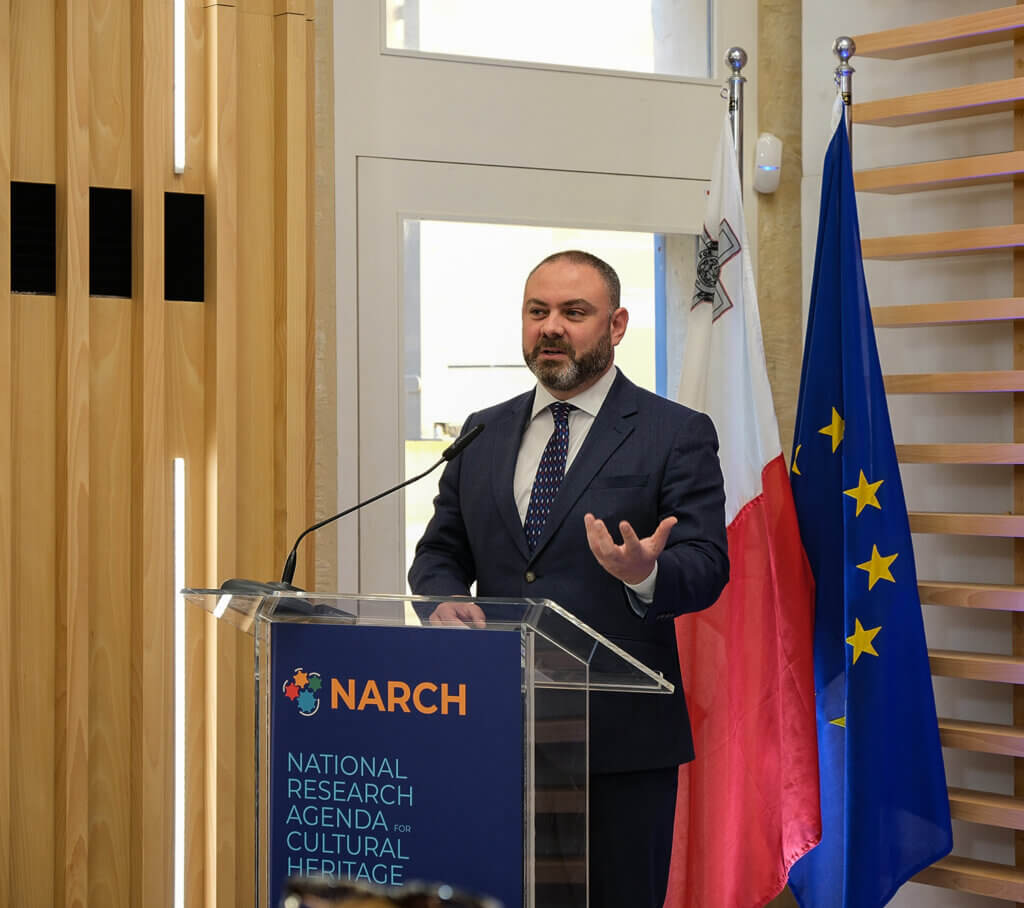

4 Comments
Well done for this excellent initiative!
I look forward for more on this.
Forza SCH – you are doing a great job
A great and promising initiative. Looking forward to more developments.